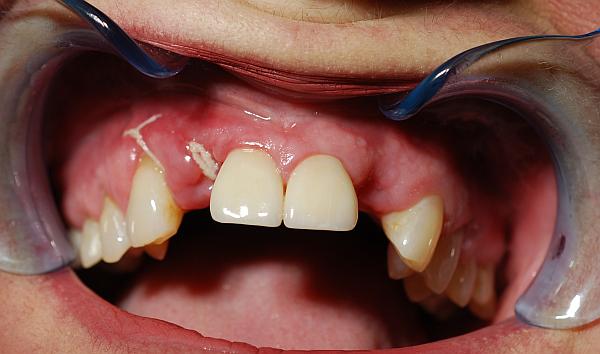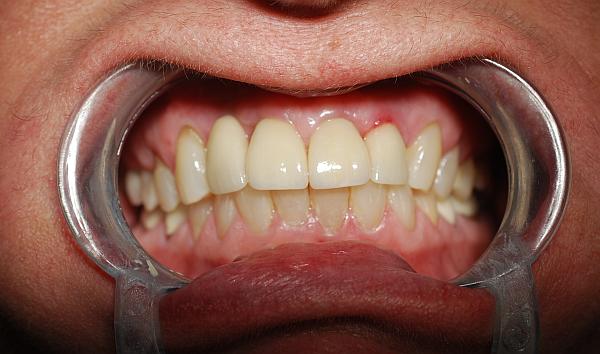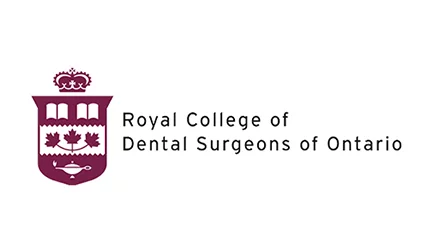DENTAL IMPLANTS
HOW CAN DENTAL IMPLANTS RESTORE YOUR ORAL HEALTH?
Your teeth are meant for life, so it is important to have a complete set of functional teeth for proper smiling, speaking, and chewing. If food is not chewed properly, the nutrients in that food will not be properly absorbed.
Missing teeth may also cause adjacent teeth to tip, drift, or be affected by unnatural wear, eventually leading to changes in the way you talk, eat, and smile. For that reason, replacing a missing tooth or teeth is important. One method of restoring a missing tooth is by placing a dental implant.
A dental implant is a substitute for your natural tooth root. Implants are generally small metal screws made of titanium—a metal that the body easily accepts—that take the place of the root and provide a place to attach an artificial tooth, or in some cases, a group of artificial teeth over a number of implanted posts.
Schedule your Consultation! Call (416) 691- 8555 or Click here
WHY SHOULD YOU GET DENTAL IMPLANTS?
f you have one or more missing teeth and do not want to get dentures, dental bridges, or crowns, then dental implants can prove to be the best alternative and can effectively restore your oral health. Dental implants are directly inserted into your jawbone and cannot fall off; that’s why they feel and function just like your natural teeth.
People can consider having implants if they have any of the following dental issues:
- Cracked, loose, or broken teeth
- Sunken face due to missing teeth
- Tooth decay
- Loose-fitting dentures
- Bone loss in the jaw area
Moreover, if you have lost teeth due to injury, trauma, or decay, you should get immediate treatment by replacing them with implants. If lost teeth are left untreated for extended periods, it can cause serious complications in your mouth, including the dislocation or shifting of adjacent teeth.
At Balsam Dental, we intend to provide our clients with top-grade oral services at affordable rates because we consider your comfort our main concern. Please contact our office to schedule a consultation. If you have any dental imperfections and want to restore your smile, then Balsam Dental can prove to be the ultimate solution for you.
HOW DO WE DEAL WITH DENTAL IMPLANTS?
At Balsam Dental, one of our dentists will assess your overall condition and discuss what options are available to you. If you are in good overall health, have good oral health, and the bone in your jaw is strong enough to support a dental implant, it may be presented to you as a treatment option.
PROCESS OF DENTAL IMPLANTS:
Placing a dental implant takes a number of dental appointments. The process begins with surgically inserting the implant into the jaw.
Once the bone and the implant have firmly fused together, a replacement tooth is constructed and fitted into place. Once you get dental implants, they will look, feel, and function like natural teeth. Implants need to be cared for like natural teeth—with regular brushing, flossing, dental checkups, and cleanings.
Implants can also be used to support dentures. Conventional removable dentures attach to the jaw with a suction effect. Over time, the jawbone may deteriorate, causing inadequate support and retention.
Consequently, the denture will no longer fit properly and will move around. The placement of dental implants provides a stable foundation for the removable denture while helping preserve the jawbone. The denture snaps into place over the implants and can easily be removed for cleaning.
TYPES OF DENTAL IMPLANTS
Dental implants have various types, and dentists place them into your jawbone according to your oral conditions and preferences.
1. ENDOSTEAL DENTAL IMPLANTS
Endosteal dental implants are usually made with titanium or ceramic material and are widely preferred. Their preparation and placement process can take two to six months. Endosteal implants look like small screws and provide people with a natural look. Moreover, they do not require additional maintenance, which means they can last for a lifetime with good oral hygiene.
2. SUBPERIOSTEAL IMPLANTS
Subperiosteal implants are recommended for people with weaker jawbones and are an alternative to endosteal dental implants. These implants are placed directly over the top of the bone, but their framework lies below the gum line.
3. ZYGOMATIC DENTAL IMPLANTS
Zygomatic implants prove to be the most effective and safest option for people who have lost a significant amount of jawbone and do not want to undergo complex dental procedures like bone grafting or sinus lift.
DENTAL IMPLANTS – BEFORE / AFTER
Dental implants are important, and they allow people to smile, speak, and chew just like their original teeth. Moreover, with good oral hygiene, they can last forever. After getting implants, people feel significant improvement in their oral health, which consequently uplifts their appearance as well.
In the implant before-and-after images, you can see a substantiated difference and improvement in the patient’s oral condition. In addition to restoring oral health, implants also prevent premature aging and facial sagging by restricting bone loss.


ESTIMATED COSTS OF DENTAL IMPLANTS
The costs of dental implants fluctuate depending on factors like your region, the type and quality of implants, the extent of oral complications, and the experience of your dentist. However, the approximate cost of implants ranges between $1,000 to $5,000 per tooth.
At Balsam Dental, you can have the best dental services cost-effectively—often covered by dental insurance. So if you are in need of dental implants, contact us and book your appointment with an expert, highly qualified, and professional team of dentists.











